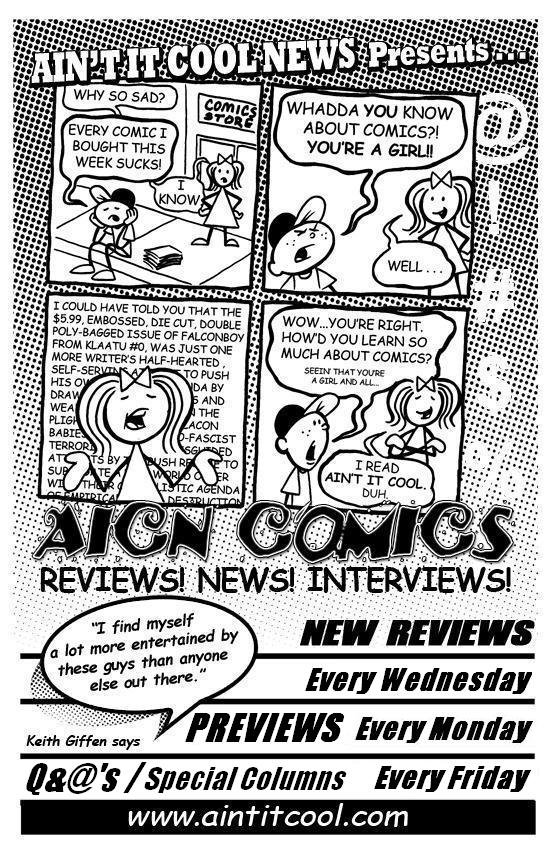
@@@@ What the #$%! is AICN COMICS: Q&@? @@@@
AICN COMICS: Q&@ is our new semi-weekly interview column where some of your favorite @$$Holes interview comic bookdom’s biggest, brightest, newest, and oldest stars. Enjoy this latest in-depth interview filled with @$$y goodness and be sure to look for more AICN COMICS as we gaze into the future of comics every week with AICN COMICS: SPINNER RACK PREVIEWS every Monday and then join the rest of your favorite @$$Holes for their opinions on the weekly pull every Wednesday with AICN COMICS REVIEWS!
Q’s by Matt Adler!
@’s by The folks behind Marvel’s ONE MONTH TO LIVE Miniseries!
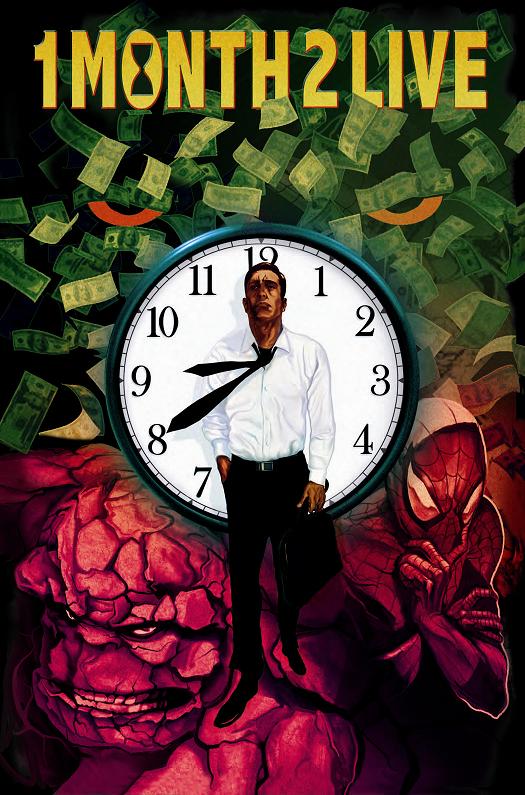
Hey folks, Matt Adler here with a mega-interview with the talented folks behind Marvel’s new mini-event ONE MONTH TO LIVE coming to shops all through September starting Wednesday September 1st! ONE MONTH TO LIVE tells the story of Dennis Sykes, an average Joe who, in classic Marvel tradition, gains superpowers through a bizarre accident. Unlike most superheroes, though, the accident gives him something else: one month to live. I spoke with the writing team (Stuart Moore, Rick Remender, John Ostrander, and Rob Williams) and editor Steve Wacker about the 5 issues that comprise Dennis’ story to learn more about where this intriguing premise may lead.
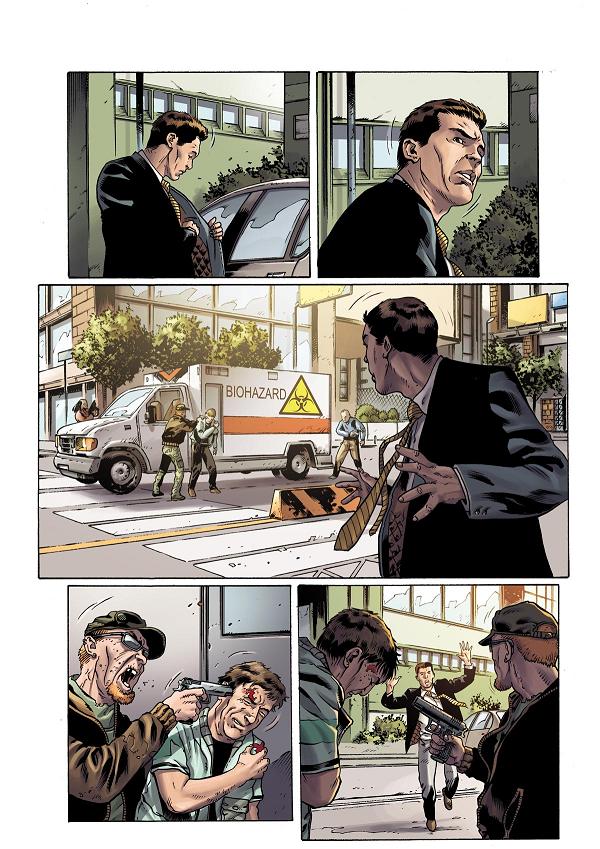
MATT ADLER (MA): Where did the idea for “One Month To Live” originate?
STEVE WACKER (SW): Over the past year I’ve had a couple people close to me die and that very human idea of what we’re meant to leave behind on this mudball has been consuming my thoughts. Then, early this year, as the Avengers office was cementing their Heroic Age plans, I kept coming back to the idea of how it must feel for someone living in the Marvel Universe to try and measure their own life against the Avengers. I mean, I get insecure around an assistant editor, so I can’t imagine trying to stand out next to people like Captain America, Ms. Marvel and Thor.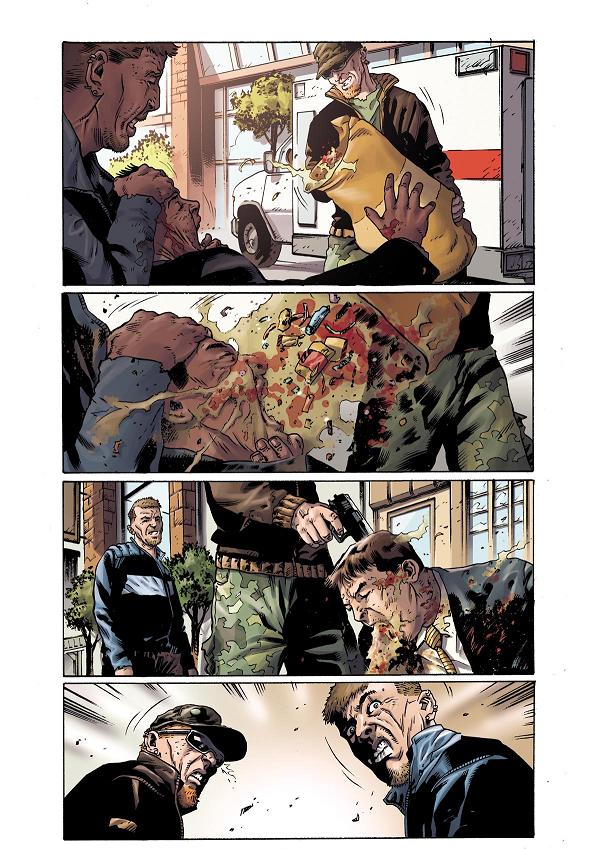 From there I did what every editor tries to do and just hire the right people. I contacted Rick who wrote the basic concept up and contacted John, Rob and Stuart to flesh things out (and argue with Rick about story points so I wouldn’t have to).
From there I did what every editor tries to do and just hire the right people. I contacted Rick who wrote the basic concept up and contacted John, Rob and Stuart to flesh things out (and argue with Rick about story points so I wouldn’t have to).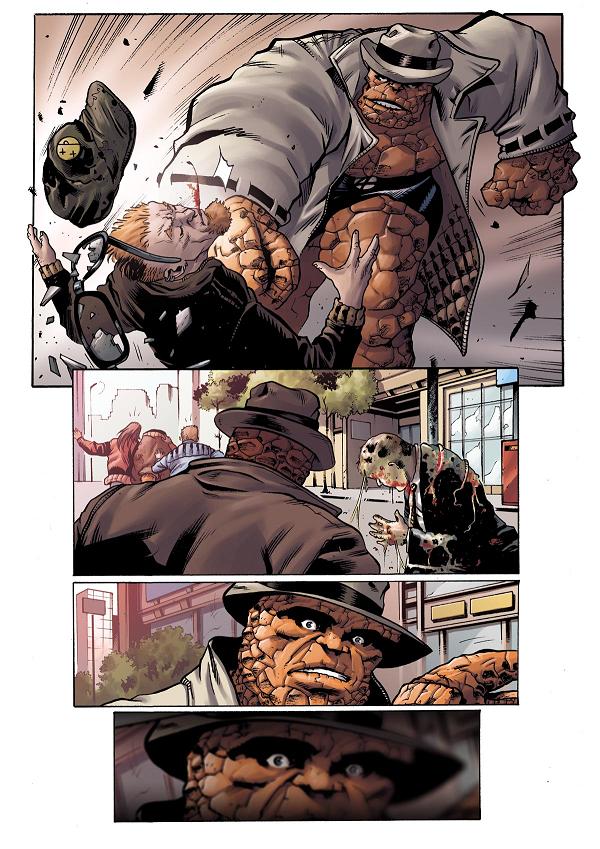 RICK REMENDER (RR): Stephen Wacker contacted me with the very simple logline: you’ve been given super powers; you only have one month left to live. It opened up about a million different ideas, a million different directions you could take it depending on what you wanted to say, what you wanted to get across. As we developed it, Stephen pushed me into a place I haven’t gone in any of mainstream work to date, a place that drew from personal experiences with cancer and mortality and life and family and put it all into this story. The more he pushed it, the more he pushed me out of my comfort zone, the more he insisted it be deeply human, the more in love I fell with what we were creating.
RICK REMENDER (RR): Stephen Wacker contacted me with the very simple logline: you’ve been given super powers; you only have one month left to live. It opened up about a million different ideas, a million different directions you could take it depending on what you wanted to say, what you wanted to get across. As we developed it, Stephen pushed me into a place I haven’t gone in any of mainstream work to date, a place that drew from personal experiences with cancer and mortality and life and family and put it all into this story. The more he pushed it, the more he pushed me out of my comfort zone, the more he insisted it be deeply human, the more in love I fell with what we were creating. 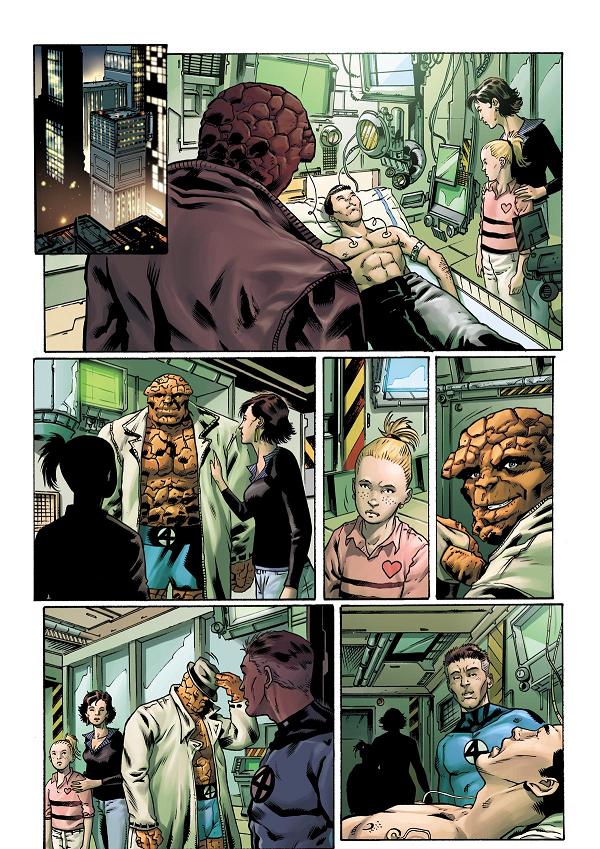 I found working on it to be cathartic as my subconscious got to reveal things to me about my own issues with mortality, how I spend my time, and the loss of loved ones. The more we grounded the story and focused on the very real human side the more important it became to us to get it right. I hope that we have; I know everyone involved has offered up real life experiences to the story, and I know I feel incredibly proud of what we’ve done with it.
I found working on it to be cathartic as my subconscious got to reveal things to me about my own issues with mortality, how I spend my time, and the loss of loved ones. The more we grounded the story and focused on the very real human side the more important it became to us to get it right. I hope that we have; I know everyone involved has offered up real life experiences to the story, and I know I feel incredibly proud of what we’ve done with it.JOHN OSTRANDER (JO): I’m assuming with our mighty editor, Steve Wacker. He called me and told me about the project and what part he wanted me to play and I said yes. Of course, yes.
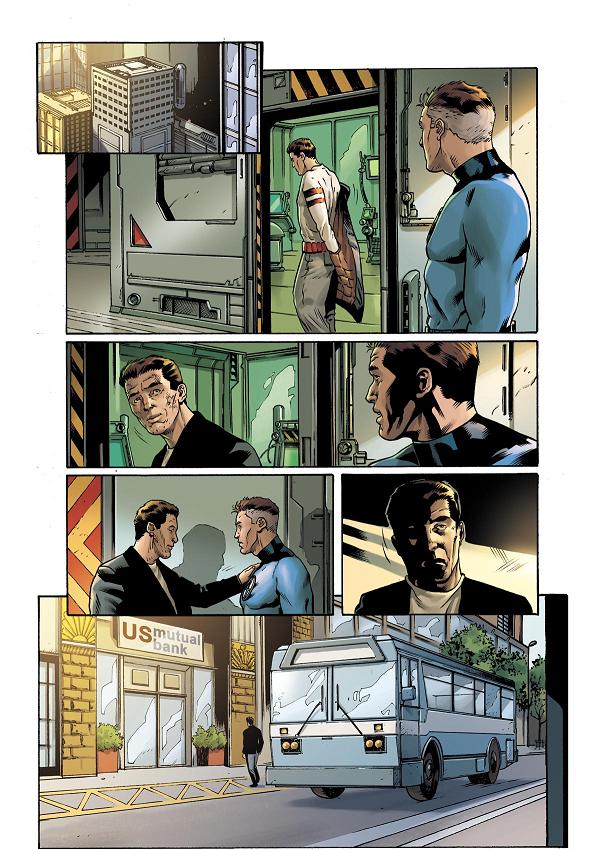
MA: How was the creative team for this series assembled?
JO: The exclusive Steve Wacker patented method: put names up on the wall and throw darts at them blindfolded. Sometimes the method doesn’t work quite right. Originally, I was going to be an inker.MA: Who is Dennis Sykes?
 STUART MOORE (SM): In a nutshell: He's YOU, if you lived in the Marvel Universe and suddenly got super powers. And a terminal diagnosis, at the same time.
STUART MOORE (SM): In a nutshell: He's YOU, if you lived in the Marvel Universe and suddenly got super powers. And a terminal diagnosis, at the same time.Several core Marvel characters -- Daredevil and Spider-Man, for instance -- got their powers from accidents involving radioactive substances. The idea behind ONE MONTH TO LIVE is a simple variation on that: what if an ordinary man received powers in a similar way, but then learned his "origin" was also a death sentence? Everything else in the series plays out from there.
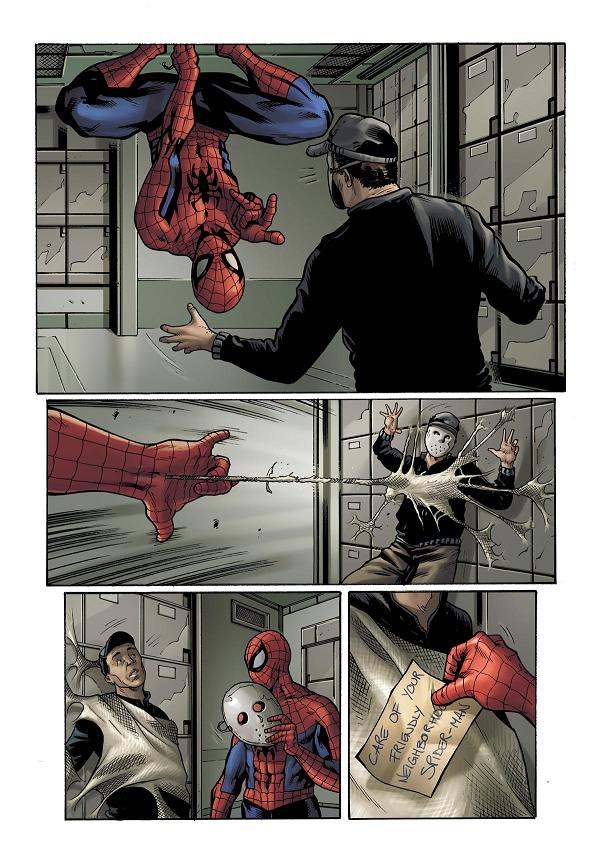 ROB WILLIAMS (RW): He’s an ordinary guy with hopes and dreams that have been crippled by compromise over the years. A mortgage, a family, a job that sucks the energy out of him preventing him from doing what he’d love to do. He grows up loving old sci-fi comics but he’s never left the Tri-State area. It’s a very relatable story. And then one day he discovers he has one month left to live and gets these super powers, and he suddenly has to decide what he’s going to do with the time remaining, what he wants his legacy to be.
ROB WILLIAMS (RW): He’s an ordinary guy with hopes and dreams that have been crippled by compromise over the years. A mortgage, a family, a job that sucks the energy out of him preventing him from doing what he’d love to do. He grows up loving old sci-fi comics but he’s never left the Tri-State area. It’s a very relatable story. And then one day he discovers he has one month left to live and gets these super powers, and he suddenly has to decide what he’s going to do with the time remaining, what he wants his legacy to be.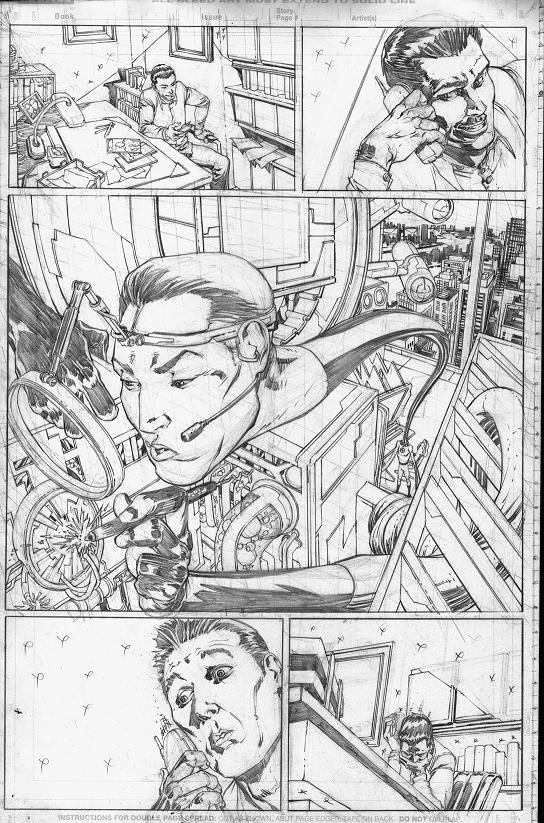 RR: He’s an everyman. He’s a guy who slowly gave up on his childhood dreams and accepted a job as a banker for the sake of security. He’s a pragmatist, a provider. He suits up and shows up and does what is expected of him. He’s a guy who watches days drift by into years as he does the same thing, mindless, as most of us are, of his own mortality waiting at some point down the road. He’s dealing with so much when the news hits him. It needed to feel abrupt and haphazard. He needed to be living his life, mired in all the to do lists and personal struggles we all have to contend with, nothing clean or contrived, awash in the same chaos we all are when the news hit.
RR: He’s an everyman. He’s a guy who slowly gave up on his childhood dreams and accepted a job as a banker for the sake of security. He’s a pragmatist, a provider. He suits up and shows up and does what is expected of him. He’s a guy who watches days drift by into years as he does the same thing, mindless, as most of us are, of his own mortality waiting at some point down the road. He’s dealing with so much when the news hits him. It needed to feel abrupt and haphazard. He needed to be living his life, mired in all the to do lists and personal struggles we all have to contend with, nothing clean or contrived, awash in the same chaos we all are when the news hit.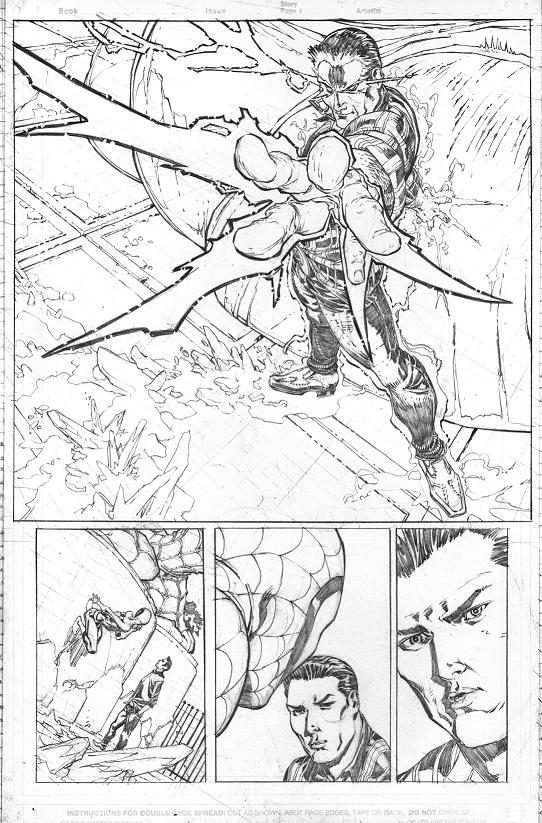 JO: At the start, a decent but apparently unexceptional guy. He’s married and has taken on his late sister’s ten year old daughter. He has always been taken with SciFi and heroic lit but never had the chance to be a hero. Life is slipping past him and he knows it. Until he sees something and refuses to look away – and pays a price for it.
JO: At the start, a decent but apparently unexceptional guy. He’s married and has taken on his late sister’s ten year old daughter. He has always been taken with SciFi and heroic lit but never had the chance to be a hero. Life is slipping past him and he knows it. Until he sees something and refuses to look away – and pays a price for it.MA: The solicitation suggests that Dennis may not necessarily choose a heroic path; what's driving him upon discovering his impending demise? Is it too simple to classify him as a hero or villain?
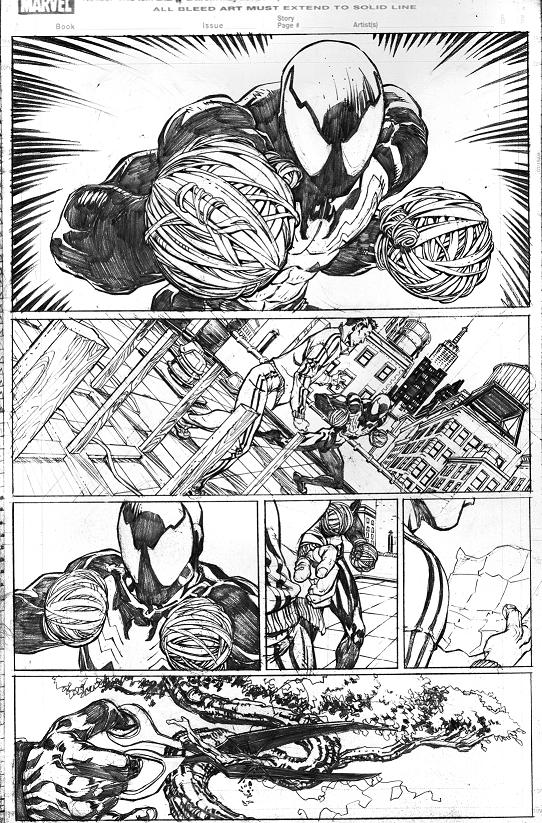 SM: No comment. That's what the whole series is about!
SM: No comment. That's what the whole series is about!RW: Dennis has to decide what he wants to be in a manner that’s reminiscent of classic Marvel origins like Spider-Man. Suddenly he has the ability to just walk into a bank and take all the money he wants. That’s got to be pretty tempting to a guy struggling to make ends meet for his family every month. It reminds me of Spidey choosing not to stop the mugger in his origin story. That’s a classic line in temptation - giving someone super powers out of the blue. They have to choose who they want to be on a scale that they have no way of preparing for. And in Dennis’ case, he could suddenly be one of the most powerful people in the whole Marvel universe. There’s a Billy Bragg lyric that goes “virtue never tested is no virtue at all.” Well, Dennis’ virtue is about to be tested.
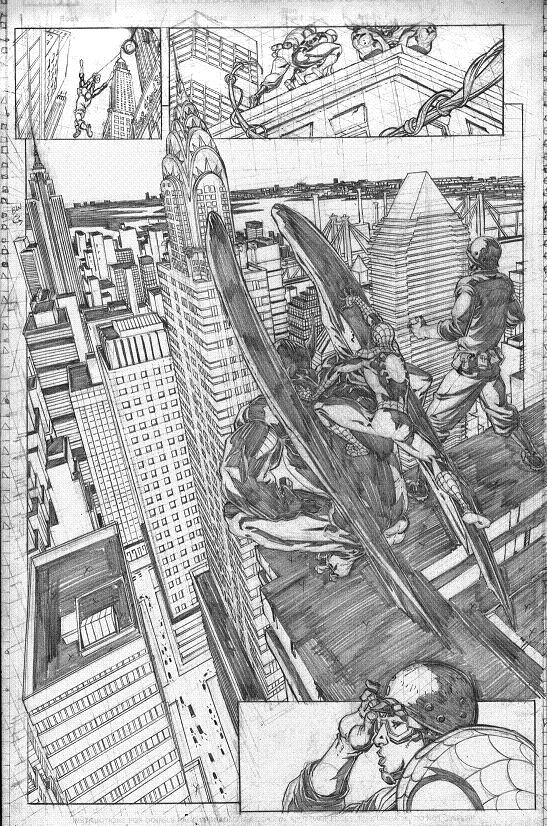 RR: I think it’s too simple to classify anyone as either. Everyone has varying degrees of both in them. We watch as that pendulum swings in Dennis. Where it ends is a big part of the story.
RR: I think it’s too simple to classify anyone as either. Everyone has varying degrees of both in them. We watch as that pendulum swings in Dennis. Where it ends is a big part of the story.MA: Accidental exposure to hazards (notably radiation and chemicals) that would be fatal in the real world has long been a source of superpowers in the Marvel Universe, and the idea has been played around with in other books, notably Warren Ellis' RUINS. What makes this a compelling aspect of the Marvel Universe to examine?
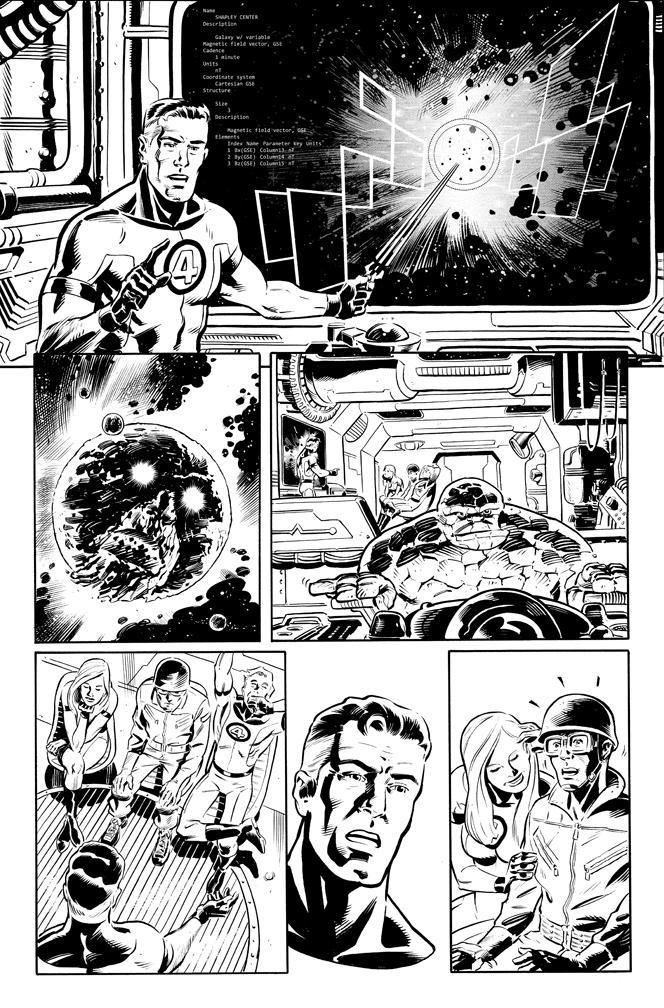 RR: Classic trope. When Stephen and I were discussing how Dennis gains these powers it was important to us both it feel like a Marvel origin. A conflicted character suddenly has his life changed by a random event. It just so happens in the MU that random event often involves radioactive elements. In this it also involves a good deal of bio-waste.
RR: Classic trope. When Stephen and I were discussing how Dennis gains these powers it was important to us both it feel like a Marvel origin. A conflicted character suddenly has his life changed by a random event. It just so happens in the MU that random event often involves radioactive elements. In this it also involves a good deal of bio-waste.JO: I think it’s a deep-seated part of the Marvel mythos. The FF, Spider-man, and so many others are more or less normal people who suddenly acquire these powers. Even the X-Men, who are who and what they are by birth, don’t usually acquire their mutant powers until puberty. They have a “normal” youth, more or less. So all the heroes bring who they are as characters to what they become as heroes or villains. Some characters, heroes or villains, are defined by their powers. At Marvel, they defined by who they are as characters first. The same holds true for Dennis and the story is not simply about the powers and whether or not he lives or dies or becomes a hero or villain – it’s about who he becomes as a person.
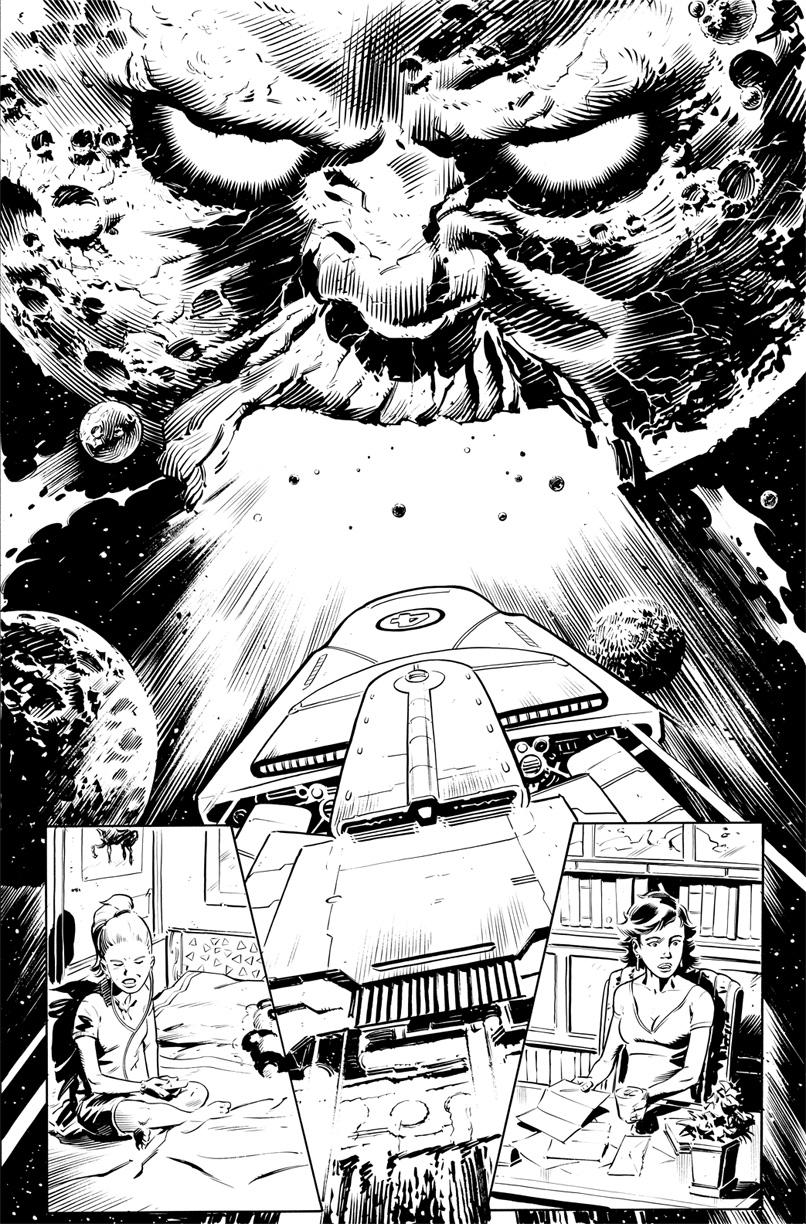 RW: I like the fact that we start this story with a Marvel archetype, as you say, but then it becomes something quite different. It’s obvious from the core concept that this isn’t your average superhero book. The main character has one month to live, and a wife and an adopted daughter he’s going to leave behind, and the writers and editors working on the book have all drawn on some very personal experiences in telling this tale. The intention has been to do the subject matter justice and not be flippant with it.
RW: I like the fact that we start this story with a Marvel archetype, as you say, but then it becomes something quite different. It’s obvious from the core concept that this isn’t your average superhero book. The main character has one month to live, and a wife and an adopted daughter he’s going to leave behind, and the writers and editors working on the book have all drawn on some very personal experiences in telling this tale. The intention has been to do the subject matter justice and not be flippant with it.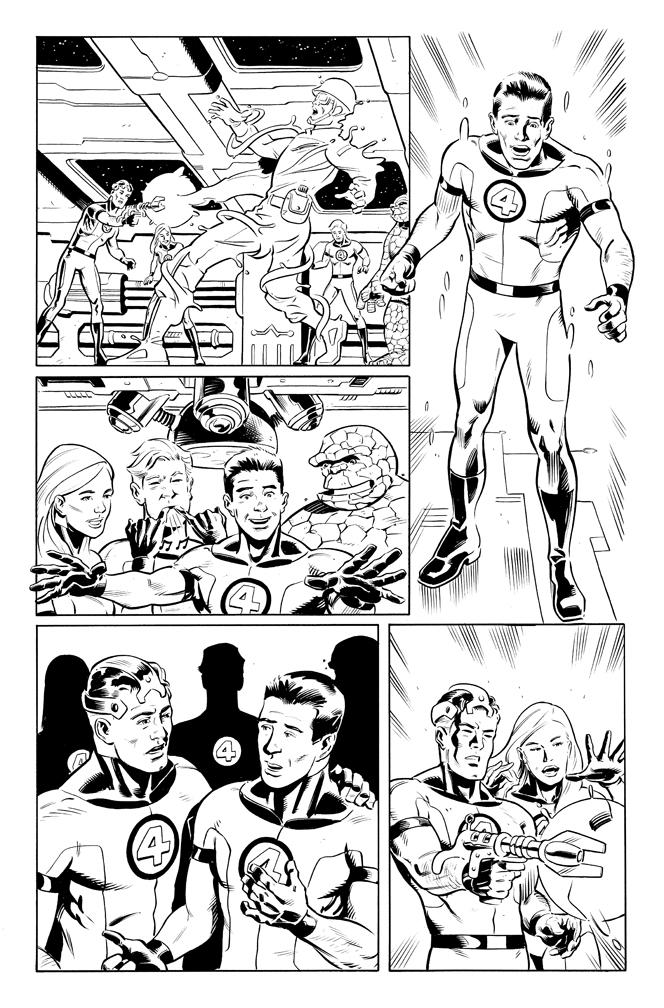 SM: Marvel has always taken the basic idea of super heroes, and then edged their stories just a little bit closer to reality. That's what we're doing here. Radiation may or may not give you super powers, in the Marvel Universe. In any universe, it'll probably make you sick.
SM: Marvel has always taken the basic idea of super heroes, and then edged their stories just a little bit closer to reality. That's what we're doing here. Radiation may or may not give you super powers, in the Marvel Universe. In any universe, it'll probably make you sick.But I want to stress something: This is not a downbeat series. In keeping with the Heroic Age, it's the story of an ordinary person trying to make his way in an incredibly stressful situation. I think we were all a little surprised at how uplifting the story became.
MA: It's been revealed that Dennis will encounter Spider-Man, the Fantastic Four, and the Avengers in the course of the series; what made these particular characters the most interesting to explore in this context?
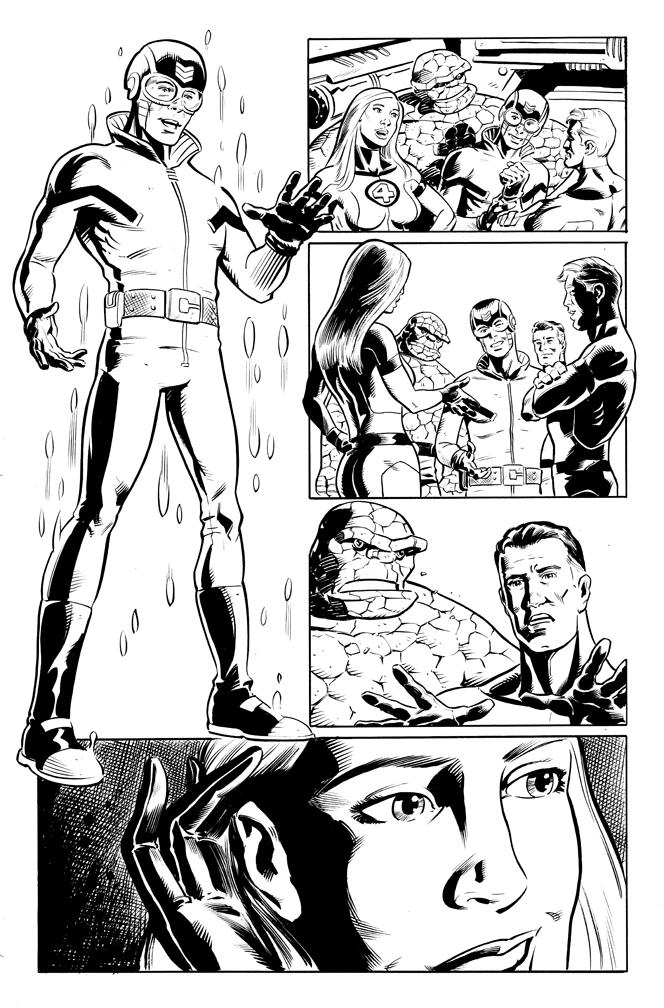 JO: In issue four, we have Wolverine who has his healing ability. Dennis could really use some of that. Dennis really has to confront is approaching mortality – and so does his family.
JO: In issue four, we have Wolverine who has his healing ability. Dennis could really use some of that. Dennis really has to confront is approaching mortality – and so does his family.SM: Spider-Man's a natural because he's the friendly neighborhood Everyman of the Marvel Universe. The other characters pretty much told us whether or not they wanted to be involved in the story. My installment was originally planned to feature a different set of characters, but the FF fit into the plot much more naturally.
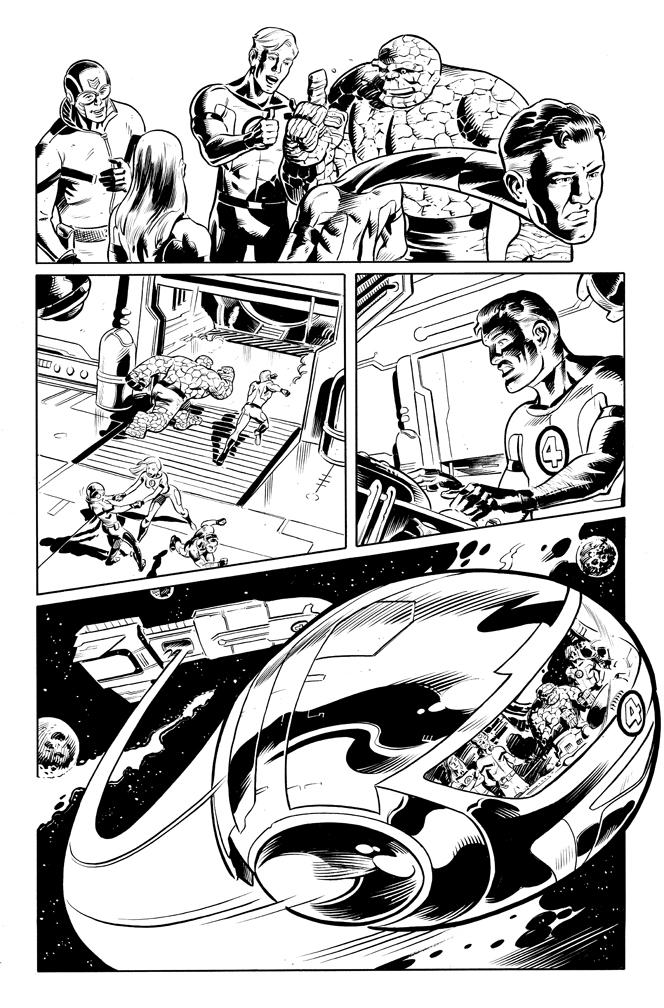 RR: If you’re going to learn how to be heroic, who better to show you the ropes? They are the cleanest examples of character you’d easily apply the title “hero”. They come closest to exemplifying the concept. They’re the best and most noble among the MU, less gray area than many of the other characters. So they play a very specific role in Dennis’ journey and what he needs to learn, and what he needs to pass down to his family.
RR: If you’re going to learn how to be heroic, who better to show you the ropes? They are the cleanest examples of character you’d easily apply the title “hero”. They come closest to exemplifying the concept. They’re the best and most noble among the MU, less gray area than many of the other characters. So they play a very specific role in Dennis’ journey and what he needs to learn, and what he needs to pass down to his family.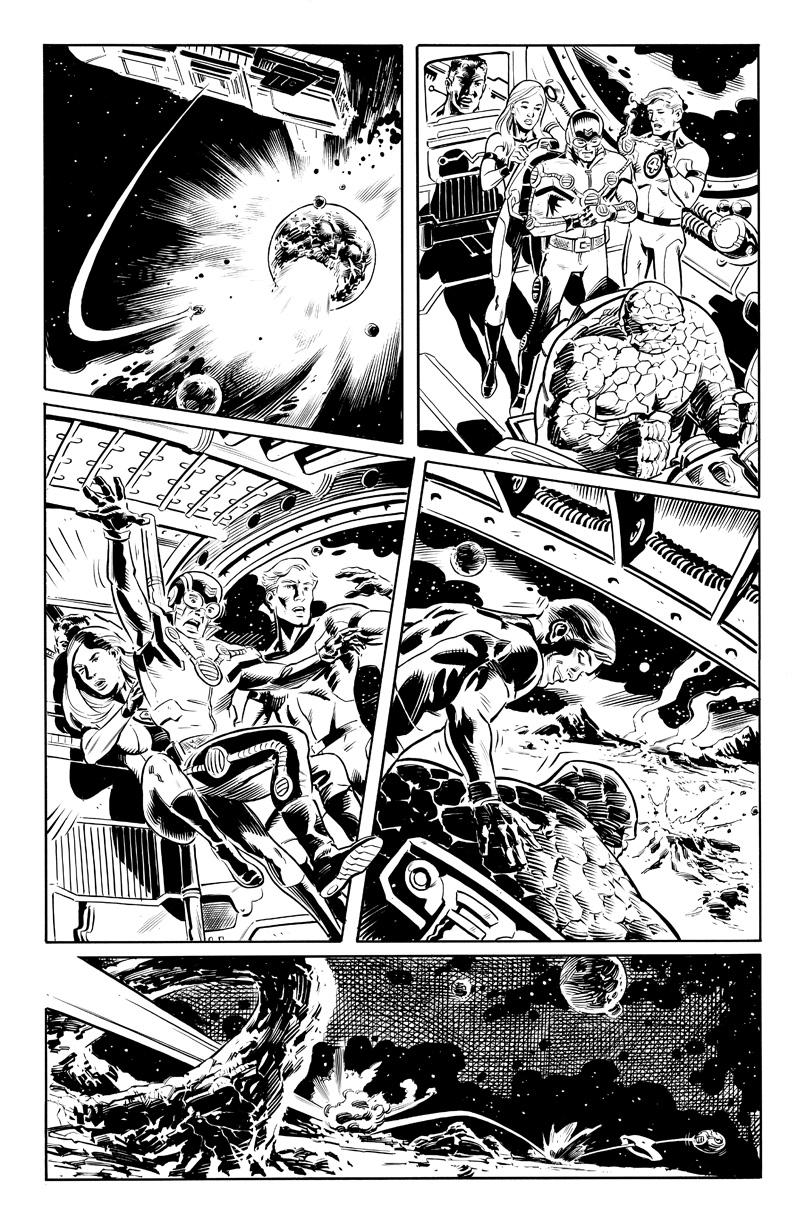 RW: They’re the heart and soul of the Marvel U, really, and Dennis couldn’t wish for better teachers and counsellors to help him through his journey. And as he grows, so does the scope of the story. He starts neighborhood-based with Spidey and next thing you know the FF are at his door showing him things a million miles away from his previously parochial existence.
RW: They’re the heart and soul of the Marvel U, really, and Dennis couldn’t wish for better teachers and counsellors to help him through his journey. And as he grows, so does the scope of the story. He starts neighborhood-based with Spidey and next thing you know the FF are at his door showing him things a million miles away from his previously parochial existence.MA: What's the structure of the series? How was it decided which writer would tackle which character?
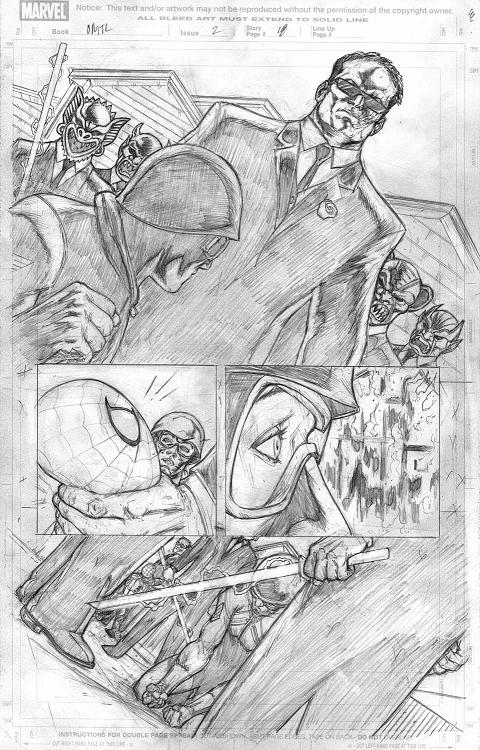 JO: It was based upon the story rather than on which character, I think. I do the fourth issue that takes us to the Savage Land. Well, of course you have to have Ka-Zar there and we also included Wolverine, for reasons that will make sense in the story.
JO: It was based upon the story rather than on which character, I think. I do the fourth issue that takes us to the Savage Land. Well, of course you have to have Ka-Zar there and we also included Wolverine, for reasons that will make sense in the story.SM: I think Steve Wacker chose me for the big cosmic chapter 'cause he knows I'm a big sci-fi nerd.
RR: Stephen and I created the cast and the basic outline from a basic 3 act structure but everyone involved came together and wrote the story. I was scheduled to do the first and final chapters and the rest fell into place on our first conference call. People gravitated towards one idea more than another and everyone found something they were excited to write. But we all broke down the real meat of it together.
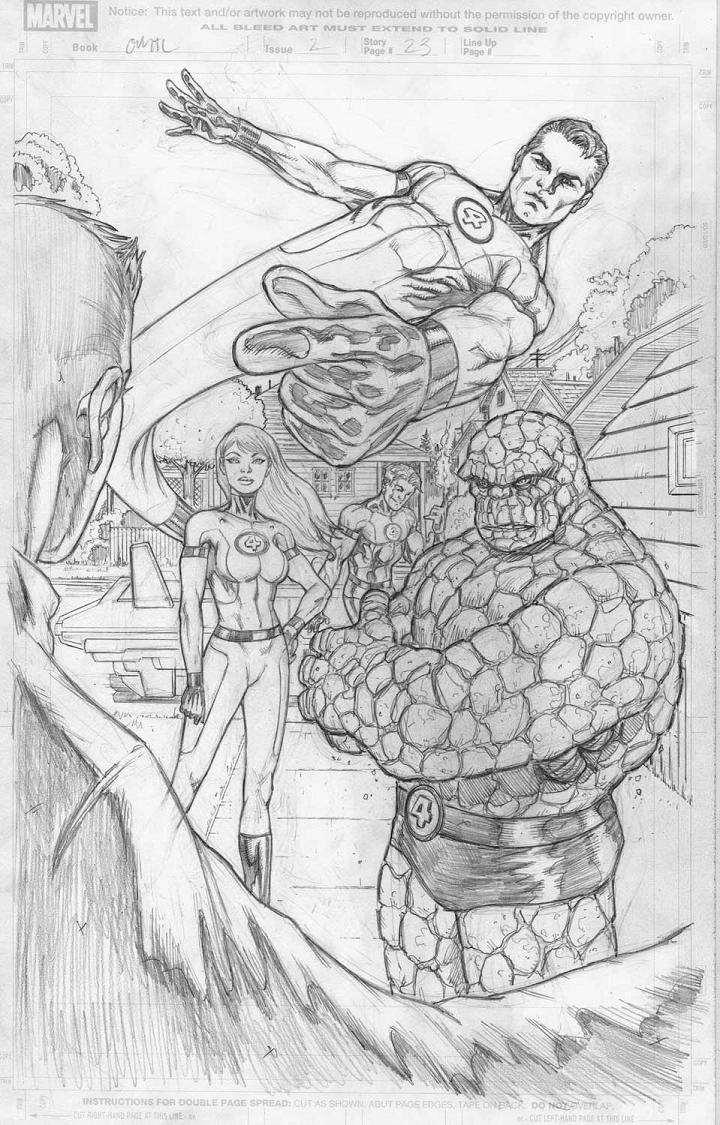
MA: Can you tell us a bit about the collaborative process amongst the writers?
RW: As I understand it – and Rick and Steve Wacker can confirm this – the original pitch was from Rick, after discussions with Steve, then myself, Stuart Moore and John Ostrander were brought in to flesh out the individual chapters. We started with a conference call where everyone bounced ideas around and then it became a writer’s room via email. Everyone’s been enormously cool about this project, taking on ideas from all sides. Issue two may be written be me but there’s ideas in it that have come from the team, and similarly one of my ideas may turn up in the other scripts. I’ve really enjoyed the process. There’s been no ego, just people committed to delivering a very powerful story.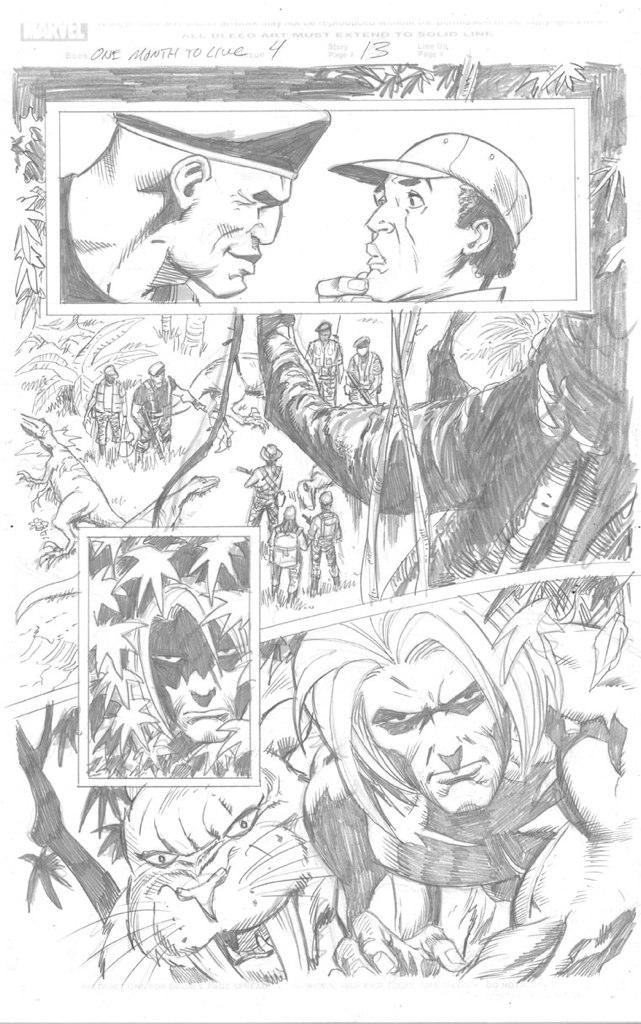 RR: It was a true collaboration, a well-oiled writers room via the telephone. Everyone involved added something different, some personal account, some personal philosophy. I’ve learned a lot working with these guys, all astute professionals willing to open up personal parts of their lives to add reflection and perspective to Dennis’ predicament. We all pushed each other to look deeper into the beats and discover what rang true.
RR: It was a true collaboration, a well-oiled writers room via the telephone. Everyone involved added something different, some personal account, some personal philosophy. I’ve learned a lot working with these guys, all astute professionals willing to open up personal parts of their lives to add reflection and perspective to Dennis’ predicament. We all pushed each other to look deeper into the beats and discover what rang true.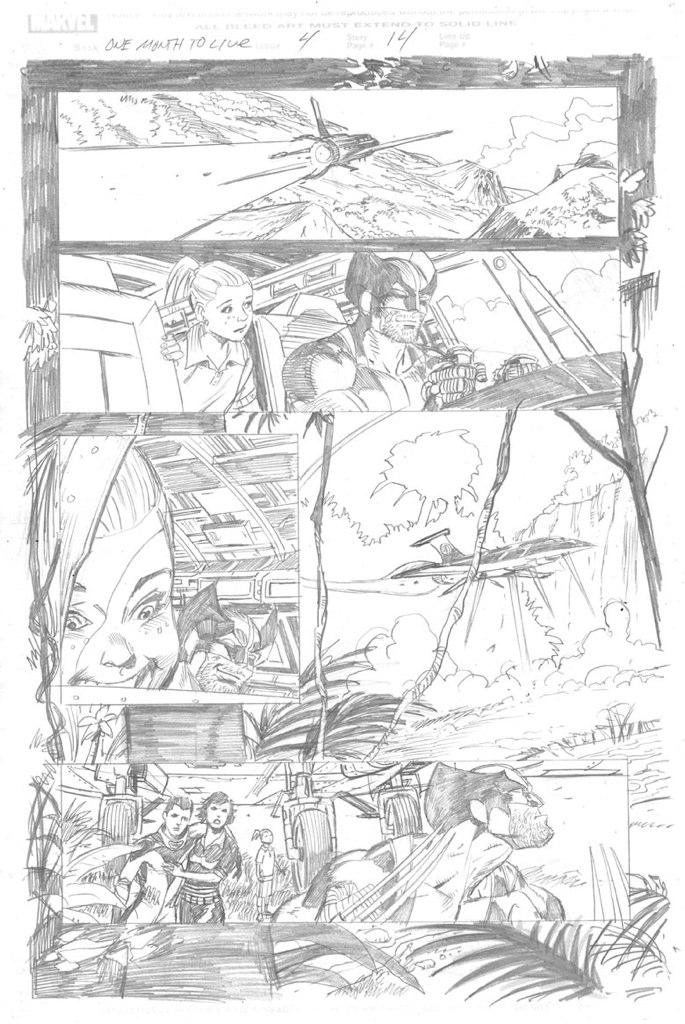 SM: We had a couple of conference calls with the editors, and then we just emailed each other like crazy. It was a remarkably smooth, ego-free process; we all threw out ideas and used them or not, depending on how good they were. We wound up writing most of the scripts in a pretty close time-frame, but it was easy enough to adjust them as necessary, to allow for the right dramatic beats to happen in each book.
SM: We had a couple of conference calls with the editors, and then we just emailed each other like crazy. It was a remarkably smooth, ego-free process; we all threw out ideas and used them or not, depending on how good they were. We wound up writing most of the scripts in a pretty close time-frame, but it was easy enough to adjust them as necessary, to allow for the right dramatic beats to happen in each book.One thing I noticed after the fact was: I think we were all very good about cautioning each other whenever one of us was about to take an easy way out, emotionally, with the characters. A story like this has the potential to fall into melodrama or cliche, and it was important to all of us that Dennis's story be told honestly. Hopefully, working together, we've pulled that off.
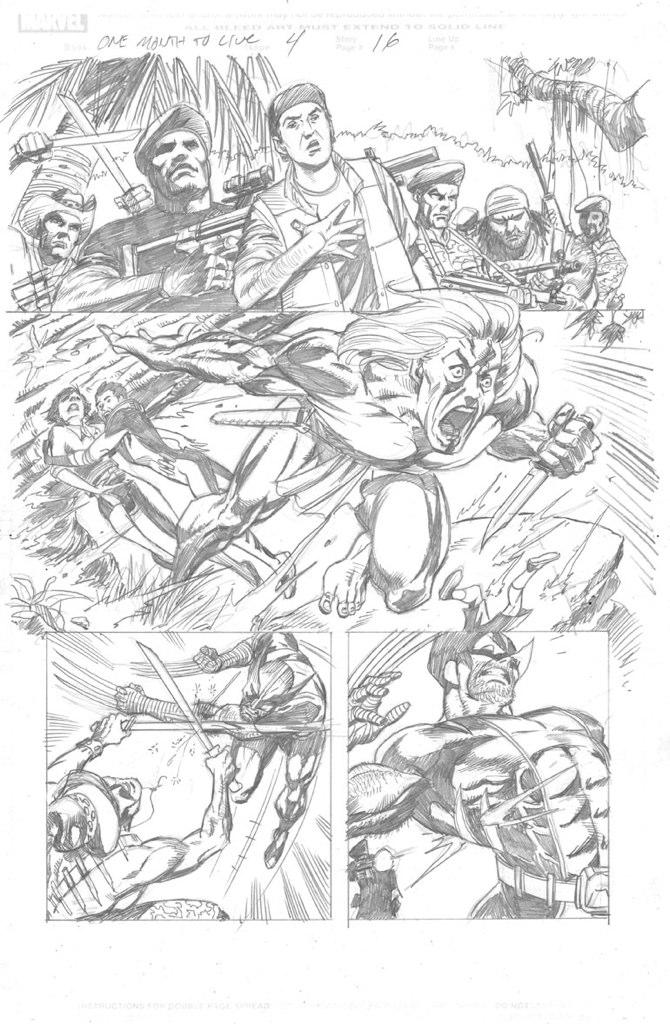 JO: For me, it was perhaps the most interesting part of the process. We talked via phone in conference calls and long bouts of e-mails, exchanging ideas and concepts, making suggestions to one another. No ego (although a certain amount of goofing around). It was a real collaboration and a real pleasure, and I think the net result will be a really powerful story.
JO: For me, it was perhaps the most interesting part of the process. We talked via phone in conference calls and long bouts of e-mails, exchanging ideas and concepts, making suggestions to one another. No ego (although a certain amount of goofing around). It was a real collaboration and a real pleasure, and I think the net result will be a really powerful story.MA: Andrea Mutti and Koi Turnbull have been listed as two of the artists working on this series; what can you tell us about their contributions? Have any other artists signed on to the series?
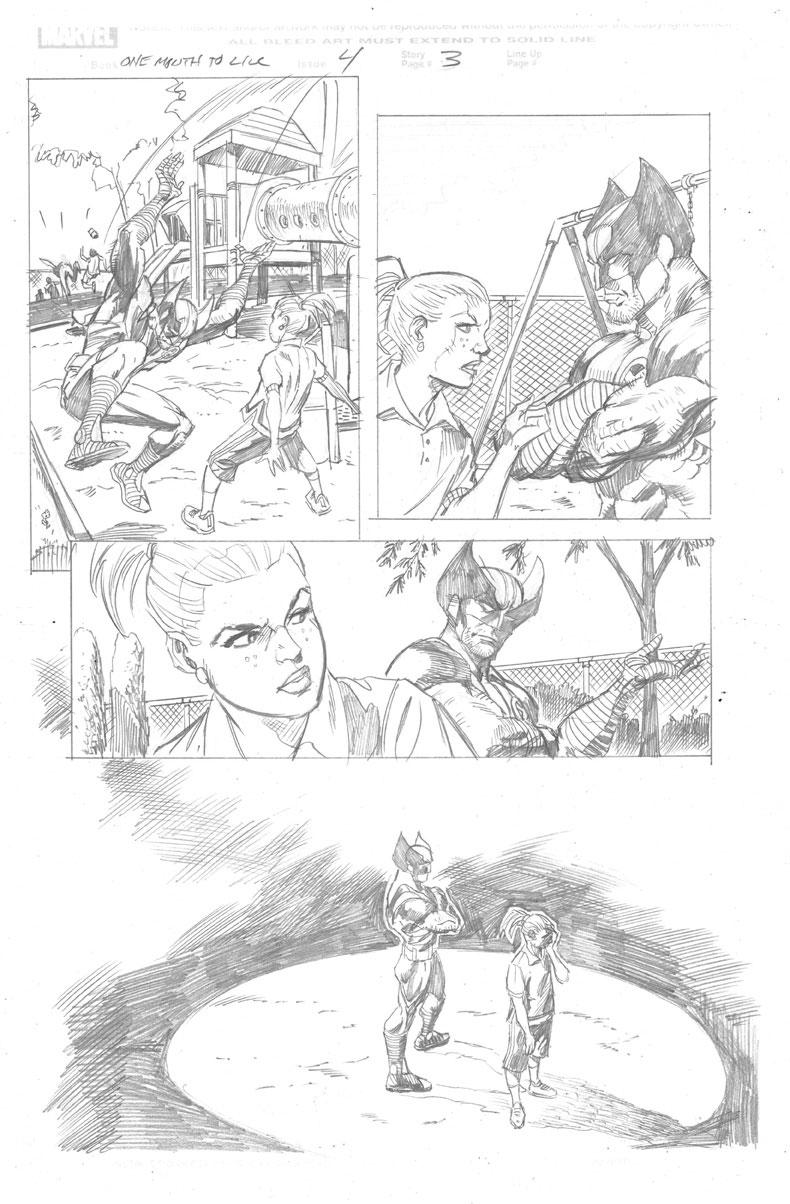 RR: Andrea is a treat to work with. He’s doing all the art on issue #1; pencils, inks, colors, everything. It’s a true labor of love. I’ve got Jamie McKelvie on the final issue, and I couldn’t be happier. He’s a friend and someone I’ve wanted to work with for a long time. He’s one of the few guys who can convey real emotion and understands acting. I’ve been very lucky with my art teams.
RR: Andrea is a treat to work with. He’s doing all the art on issue #1; pencils, inks, colors, everything. It’s a true labor of love. I’ve got Jamie McKelvie on the final issue, and I couldn’t be happier. He’s a friend and someone I’ve wanted to work with for a long time. He’s one of the few guys who can convey real emotion and understands acting. I’ve been very lucky with my art teams. JO: The artist on my issue is Graham Nolan, an old friend and collaborator with whom I really happy to be working with again. Graham’s a wonderful artist and there’s a lot of character stuff in it that Graham will excel at. And, since we’re in the Savage Land for part of the issue, there are also dinosaurs. And mercs. And Wolverine. (snikt!) I’ve already seen a lot of the pencils and they’re looking great.
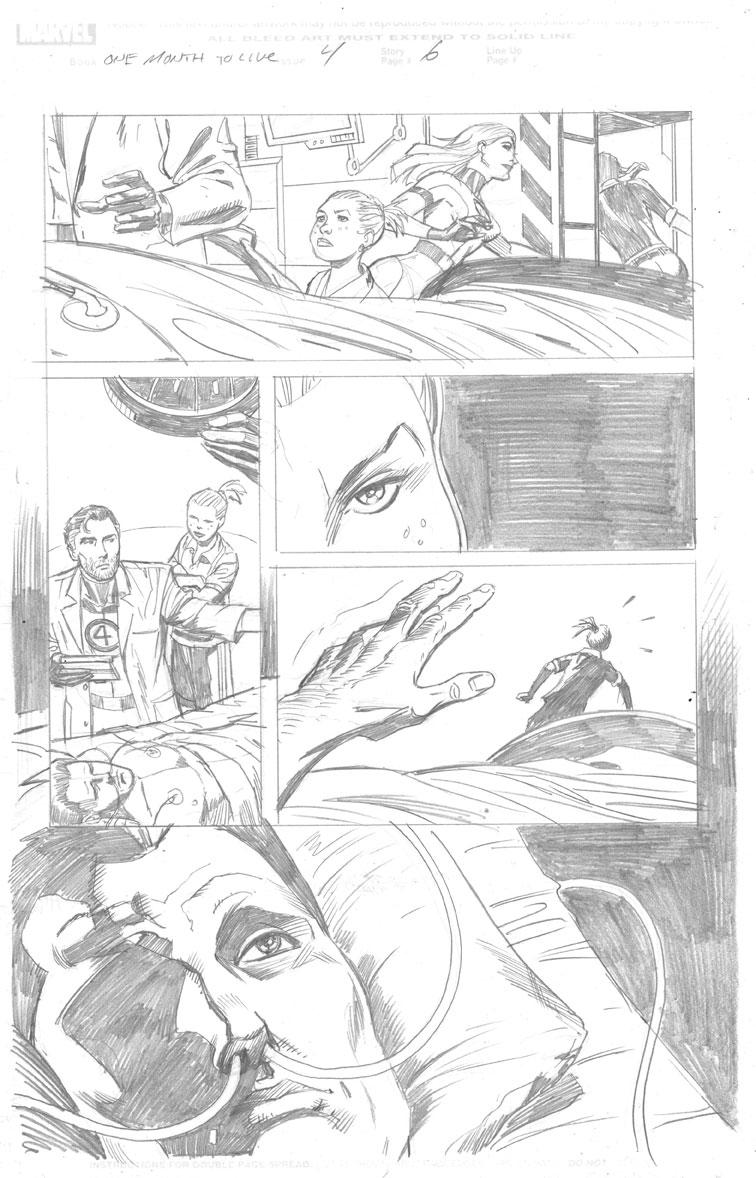 SM: My artist is Shane White. He's an indy comics and storyboard artist -- as far as I know this is his first work for Marvel -- and it's phenomenal. Our chapter is high adventure, space opera at the heart of the galaxy, and Shane handled it all beautifully. He does a great Fantastic Four.
SM: My artist is Shane White. He's an indy comics and storyboard artist -- as far as I know this is his first work for Marvel -- and it's phenomenal. Our chapter is high adventure, space opera at the heart of the galaxy, and Shane handled it all beautifully. He does a great Fantastic Four.MA: What other projects do you guys have coming up?
JO: The STAR WARS series I’ve been writing over at Dark Horse, STAR WARS LEGACY, is winding up but we’ve been given a six issue miniseries, STAR WARS LEGACY: WAR, with which to really bring the series to a close. Six issues of Force-induced mayhem and there’s no guarantee any of the characters will be alive at the end of it. Starting in December. SM: I've got a lot coming out between August and October! The two biggest: NAMOR, THE FIRST MUTANT, a new monthly book pitting the Sub-Mariner against aquatic vampires (Marvel, August); and SHADRACH STONE, an original graphic novel about lies, destiny, and alternate worlds (Penny-Farthing Press, September). I'm also fond of SPIDER-MAN: BACK IN QUACK, a one-shot teaming Spidey with Howard the Duck. That's in September, too.
SM: I've got a lot coming out between August and October! The two biggest: NAMOR, THE FIRST MUTANT, a new monthly book pitting the Sub-Mariner against aquatic vampires (Marvel, August); and SHADRACH STONE, an original graphic novel about lies, destiny, and alternate worlds (Penny-Farthing Press, September). I'm also fond of SPIDER-MAN: BACK IN QUACK, a one-shot teaming Spidey with Howard the Duck. That's in September, too.RR: UNCANNY X-FORCE launches in October with masters of art science Jerome Opeña and Dean White. The last arc of FEAR AGENT (Dark Horse) is currently under way with Mike Hawthorne, Tony Moore and John Lucas. I’ve got the last few issues of PUNISHER’s Franken-Castle arc with Tony Moore and Dan Brereton, then some more PUNISHER stuff. LAST DAYS OF AMERICAN CRIME (Radical) with Greg Tocchini is wrapping up. I served as lead writer on Epic/PCF’s new video game BULLETSTORM and that ships in February.
RW: I have SHADOWLAND: GHOST RIDER coming soon, with amazing art by Clayton Crain, a Son Of Satan story in the TOMB OF TERROR horror anthology drawn by Pablo Pappino, and a couple of other Marvel projects that haven’t been solicited yet. My ROBOCOP series is continuing with Dynamite and I’m a regular contributor to 2000AD and the JUDGE DREDD MEGAZINE in the UK. Myself and the crazily talented D’isreali have a new ten-part LOW LIFE series starting in 2000AD #1700 in a few weeks. You can see previews on my blog.
MA: Thanks for taking the time to answer these questions. Here are the writing / art teams for each issue of ONE MONTH TO LIVE.
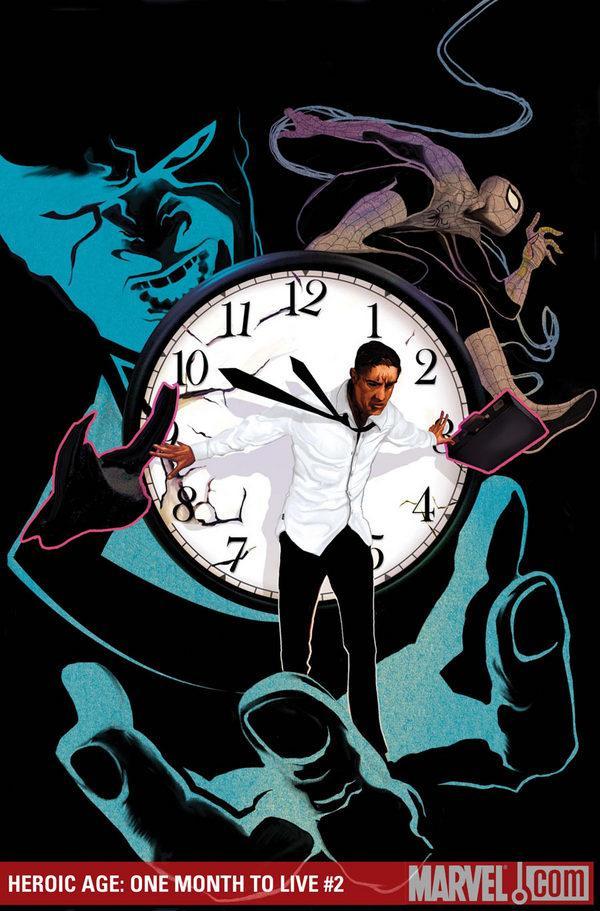
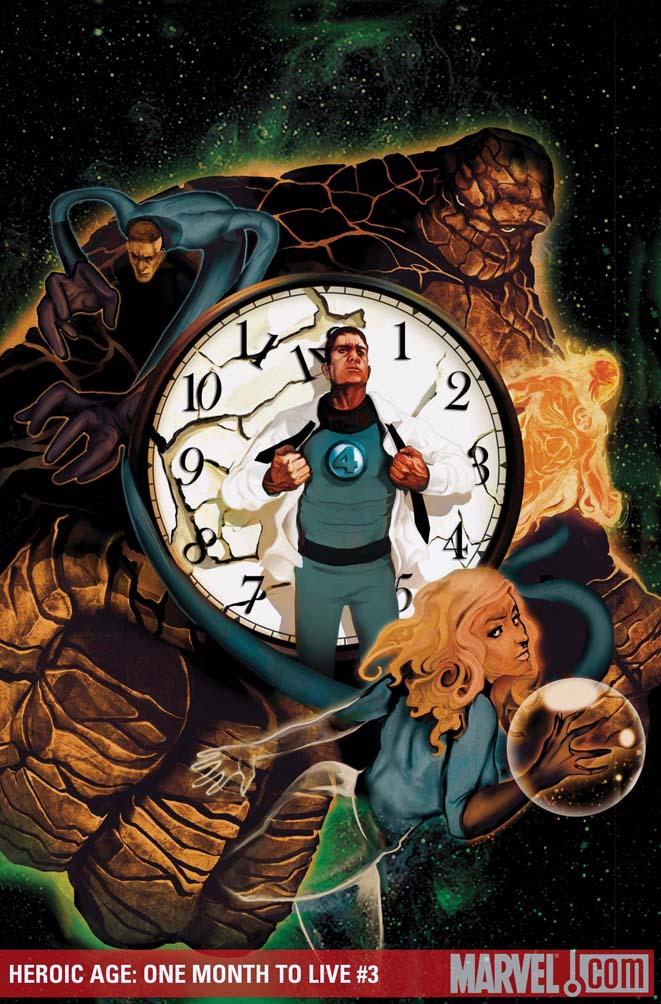
OMTL #1 W: Rick Remender A: Andrea Mutti
OMTL #2 W: Rob Williams A: Shawn Moll, Koi Turnbull
OMTL #3 W: Stuart Moore A: Shane White
OMTL #4 W: John Ostrander A: Graham Nolan
OMTL #5 W: Rick Remender A: Jamie McKelvie
Look for ONE MONTH TO LIVE in September from Marvel.
Matt Adler is a writer/journalist, currently writing for AICN among other outlets. He’s been reading comics for 20 years, writing about them for 7, and spends way, way, too much time thinking about them, which means he really has no choice but to figure out how to make a living out of them. He welcomes all feedback.OMTL #2 W: Rob Williams A: Shawn Moll, Koi Turnbull
OMTL #3 W: Stuart Moore A: Shane White
OMTL #4 W: John Ostrander A: Graham Nolan
OMTL #5 W: Rick Remender A: Jamie McKelvie
